When it comes to capturing life's most precious moments or creating professional content, selecting the right video camera brand can be crucial. In recent years, advancements in technology have led to a diverse array of options, each offering unique features and specifications tailored to varied needs. The best brands in the market not only provide top-tier image quality and reliability but also cater to different budgets and levels of expertise. If you're ready to dive into our expertly curated list of the best brands for video cameras, look no further as we present our recommendations below.
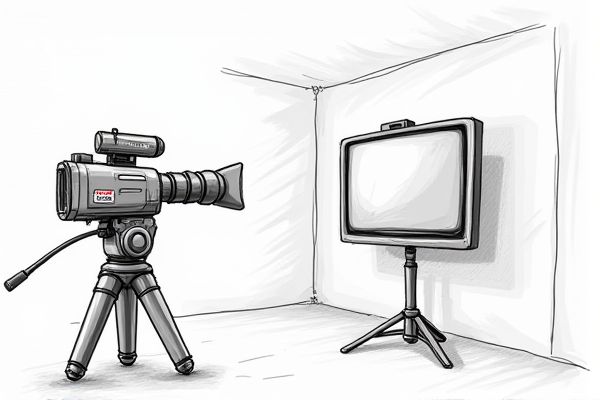
Illustration of video camera
Best brands of video camera in 2025
Canon
Canon remains the dominant force in the digital camera market, holding a significant 46.5% market share as of 2023, far surpassing its competitors such as Sony with 26.1% and Nikon with 11.7%. This dominance is attributed to Canon's strategic release of affordable models like the EOS R8 and EOS R100, which cater to a broader range of consumers. Despite other brands like Sony and Nikon leading in technological innovations, Canon's strong brand loyalty and diverse product lineup have maintained its market lead. Canon's global shipments also reflect its dominance, with 41.2% of the mirrorless camera market share in 2023. The company's market value and revenue further underscore its position as a leader in the industry. Learn more about Canon's market positioning by exploring digital camera market share insights.
Sony
Sony has solidified its position as a leading producer of video cameras, particularly in the mirrorless segment. In the Japanese market, Sony held a 49.7% share of the mirrorless camera market in July 2024, significantly outpacing Canon and Nikon. Globally, Sony accounted for 27.9% of the digital camera market share in 2023, with Canon leading at 46.5%. The Sony ZV-E10, an entry-level camera, has been a best seller in Japan and internationally, praised for its outstanding autofocus and features for vloggers. Sony's technological advancements and strong market performance make it a preferred choice for many videographers and photographers.
Panasonic
Panasonic, although not the market leader, is a notable producer of video cameras, holding a 4.3% share of the global digital camera market as of 2023. The company has introduced premium cameras like the DC-S1H and maintains a 5.5% share in the global mirrorless camera market. Despite being behind giants like Canon and Sony, Panasonic's cameras are recognized for their quality and innovation. In 2021, Panasonic accounted for only 4.4% of the digital camera market, but it continues to have significant potential for growth. The company's revenue and market presence indicate its stability and commitment to the industry. For more details, explore their current statistics and achievements.
Blackmagic Design
Blackmagic Design is a leading manufacturer of electronic equipment for broadcast and video production, recognized for offering high-quality and affordable solutions. Founded in 2001 by Grant Petty and Doug Clarke, the company has released 12 digital cameras and numerous other products, including the acclaimed Cinema Camera and URSA Mini Pro 12K. Blackmagic Design holds a 2.16% market share in the Video Production & Publishing sector and serves a diverse customer base, with 52% of its customers in the United States and 9% in the United Kingdom. The company's products are widely used in media production, marketing, and higher education, catering to both small and large enterprises. Blackmagic Design's innovative products, such as the Blackmagic Videohub 12G and 12G-SDI routers, continue to enhance the professional video camera market.
RED Digital Cinema
RED Digital Cinema is a leading manufacturer of professional digital cinema cameras, renowned for its high-quality image capture and innovative technology. Founded in 2005 by Jim Jannard, RED has consistently pushed the boundaries of digital filmmaking with cameras like the RED EPIC and V-RAPTOR XL 8K VV, which offer advanced features such as high dynamic range (HDR) and high frame rates. The company reported an estimated revenue of $400 million in 2020 and currently has an estimated annual revenue of $91.7 million. RED's cameras are used in major film and television productions, and the company is expected to contribute significantly to the digital cinema camera market, which is projected to grow at a CAGR of 12.70% from 2024 to 2031. With its modular camera system and groundbreaking image quality, RED remains a top choice among filmmakers and cinematographers.
Nikon
Nikon is a renowned brand in the photography and videography industry, known for its high-quality cameras and lenses. As of 2021, Nikon ranked as the third-largest camera manufacturer globally, accounting for 13.7% of camera sales, although this marked a decline from 18.6% in 2020. Despite the decline in digital camera sales, Nikon's Imaging Product Business saw an 18.7% revenue growth in 2022, driven by the sales of mid-to-high-end optical products, including interchangeable lenses for mirrorless cameras. Nikon's cameras, such as the Z-Series mirrorless models, are highly regarded for their performance and image quality. The company's market cap as of February 2023 was $3.53 billion, reflecting its significant presence in the market.
Fujifilm
Fujifilm, although not a leading producer of dedicated video cameras, has made significant strides in the digital camera market, particularly with its mirrorless and medium-format cameras. In 2023, Fujifilm sold 430,000 units, capturing a 6% market share in the global digital camera market, with a strong focus on high-performance mirrorless cameras. The company's X100VI, for example, has been a sales hit, known for its versatility and high-resolution sensor. Despite not having dedicated video cameras, Fujifilm's cameras are highly regarded for their photographic capabilities. Fujifilm holds around 40% of the non-full-frame camera market, solidifying its position as a market leader in APS-C and medium-format cameras.
JVC
JVC, a renowned brand in the video camera industry, is recognized for its high-quality and innovative products. As one of the key players in the pocket video camera market, JVC has maintained a significant market share, particularly in North America, where it is predicted to continue holding a considerable market size globally. JVC's products are highly sought after, and the brand is often mentioned alongside other major players like Sony and Panasonic. The global pocket video camera market, which includes JVC's offerings, was valued at USD 3.6 billion in 2022 and is projected to grow at a modest CAGR of 4% until 2032. JVC's commitment to innovation and customer satisfaction has solidified its position as a leading brand in the video camera sector.
GoPro
GoPro is a leading brand in the action camera market, holding approximately 47% of the global market share as of 2023. Known for its innovative products like the GoPro HERO11 Black, the company has maintained its dominance despite increasing competition from brands like DJI, which holds around 20% of the market share. GoPro's average selling price for action cameras was around $350 in 2023, expected to rise to $400 in 2024. The company's success is also driven by its strong online sales, with 55% of total sales occurring online, and a significant presence in North America, accounting for 40% of total sales. GoPro's products are popular among younger users, with 60% of users aged between 18-34 years. For more detailed insights, you can check the action camera market statistics.
DJI
DJI has emerged as a dominant force in the video camera market, particularly in Japan, where the DJI Osmo Pocket 3 has captured a significant 24.3% market share since November 2023. This success has propelled DJI to lead the manufacturer share of video camera sales for 11 consecutive months, with its overall market share skyrocketing from 7.3% in September 2021 to 37.7% by September 2024. The Osmo Pocket 3's popularity is attributed to its advanced features such as a Type 1.0 CMOS image sensor, 4K/120p recording, and HDR capabilities. DJI's dominance has led to a decline in market share for traditional manufacturers like Panasonic and Sony, with Panasonic's share dropping from 49.3% to 18.8% and Sony's from nearly 40% to 17.5%. This shift underscores the growing preference for gimbal and action cameras in the market.










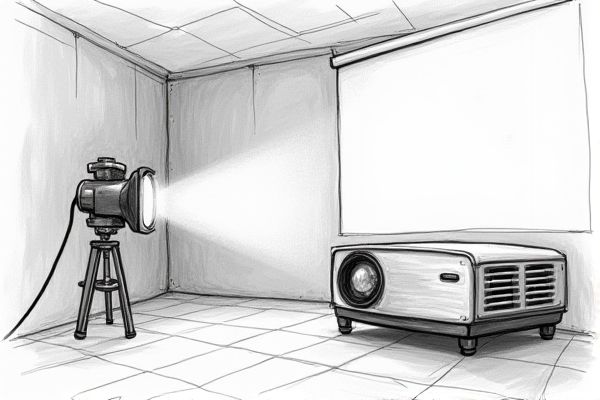
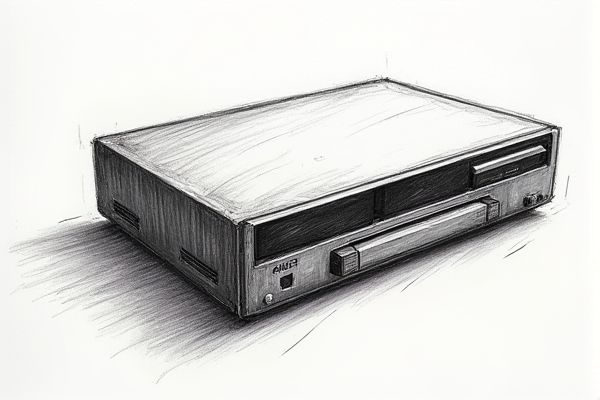
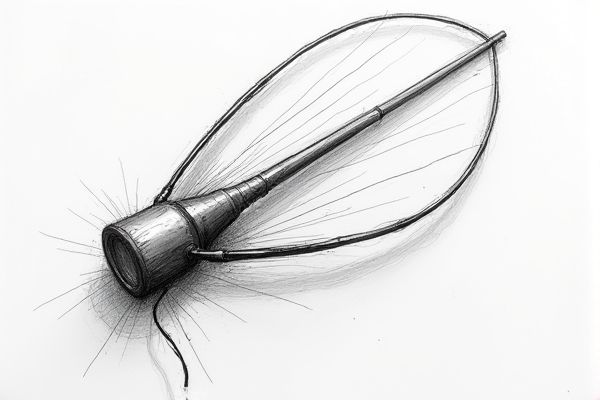


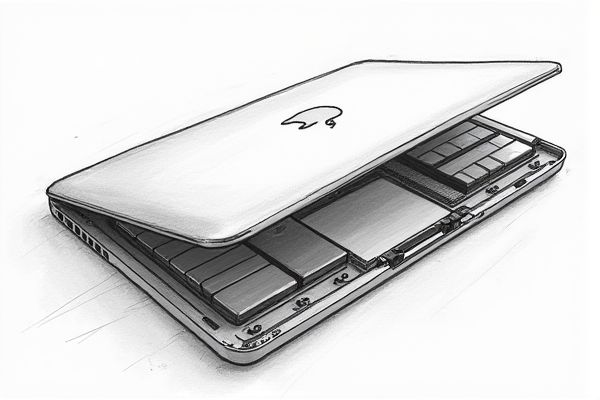
Leave a Reply
Your email address will not be published.